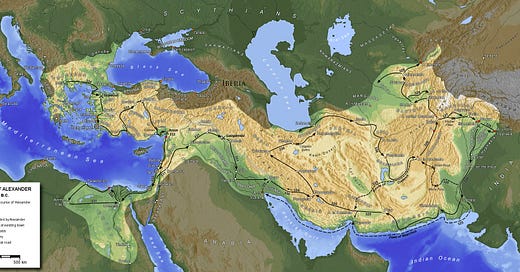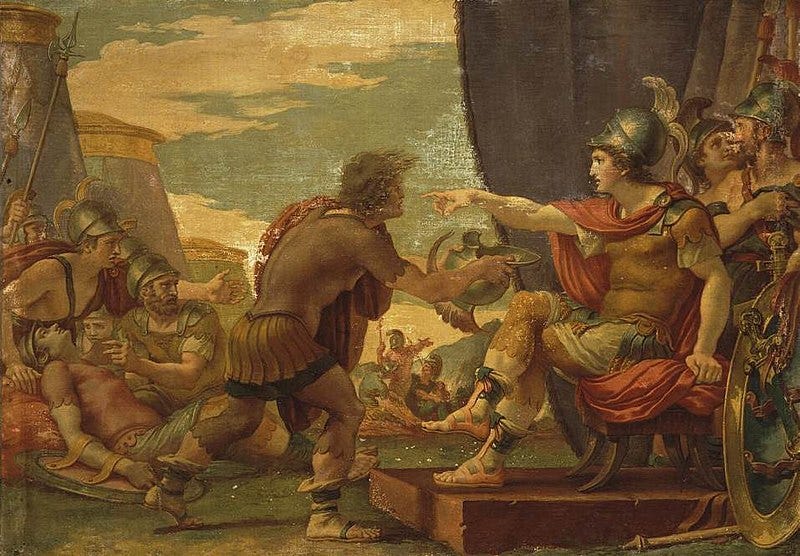Unspoken Results of Alexander The Great's Conquests and Empire
Secured "Western Civilization/ Meditation Supremacy"
While the various greek states of antiquity formed alliances under Sparta & Athens to stop the "Persian Threat" of invasion, following this momentary peace the two main partners previously mentioned would turn on each other in a later conflict. This lack of cohesion among greeks, allowed Persia to enter the politics of Greece once again through in-direct means. Alexander and his generals used this corruption as a provocation to invade Anatolia after subjecting the Balkans with his father, saying (most likely as propaganda) that the Persian nobility bribed his father's assassins. However, you feel about the West or Mediterranean supremacy of the ancient world; without Alexander's campaigns, the world would be very different from today if his campaigns were unsuccessful.
The extent of the empire of Alexander the Great. Source: Wikipedia
Freedom of Religion or Religious Acceptance
The speed at which Macedon expanded across the known ancient world left Alexander to make many difficult decisions while maintaining an empire. One that he saw early on and fixed was a ruling on religious matters for new subjects/regions. Although a believer in Greece's Pantheon, Alexander knew that the crash of different beliefs could destroy his empire at any moment. After subjecting Anatolia, Egpyt, and most of central Asia he made his will clear; every person would be able to observe how they wanted, and no restrictions nor barriers would be made to halt non-Greek God worship. Following this though, Alexander to preserve what he saw as Hellenistic culture built thousands of religious temples and places of worship for various Greek Gods/Goddesses. Many attribute this along with his generals' successor kingdoms to the age of Hellenism that arose after Alexander's death.
Cades, Giuseppe, Alexander the Great Refuses to Take Water, 1792. Source: Wikipedia
Standardization of "Multi-Cultural" Empires/Societies
One of Alexander's and by proxy his generals' greatest legacies is how they approached the cultural diffusion of Hellenism to the various people that they eventually ruled over. Alexander began this tradition by marrying a Persian princess from the same lineage as Darius (his rival) and demanded that all his men find a "Persian" wife to make Greek-Persian children with. This not only eased tensions between the Greek minorities within various non-Greek populations that they would be exposed to but helped develop new cultural touchstones. Even after Alexander's death leaders of "The Diadochi" like Ptolemy or Seleucus developed this idea further by stratifying the various mixed populations within their kingdoms (much in the same vein as colonial Spain). While this sometimes led to inter-conflicts, it mostly allowed these leaders' to reign peacefully until Roman dominance of the region centuries later.
Map of the Diadochi successor kingdoms to Alexander the Great's empire, before the Battle of Ipsus (301 BCE). Source: www.ancient.eu






